
Main Page
Alphabetical Menu
Chronological Menu
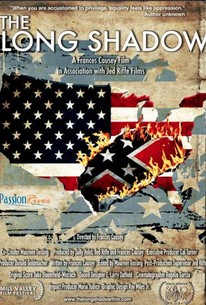 
The Long Shadow is a timely and provocative look at racism and the roots of white privilege in America. Director Frances Causey sheds light on the period of slavery in the South including the rise of the KKK and segregation. Using a combination of archival footage and talking heads with historians and authors, Causey shows how it's no accident that racism still exists today in subtle and not-so-subtle ways long after slavery had been abolished. Bravo to the director for being candid about Edmund Pendleton, one of her ancestors who was racist. It takes a lot of courage and selflessness to explore not only the dark history of America, but also of her own family history. Although this doc is quite informative, thorough and persuasive, admittedly, it feels a bit too dry and academic rather than emotionally engrossing and cinematic. It's not as powerful, enraging nor as haunting as the doc Neshoba, but at least it's not as lazy nor as unpersuasive as Dinesh D'Souza's Death of a Nation. The Long Shadow opens via Passion River Films at Cinema Village. Over at Village East Cinema, you'll find the doc 3100: Run and Become about the Self-Transcendence 3,100 Mile Race in New York. Runners travel from all around the world compete in the race. They spend 52 consecutive days running 60 miles around a Queens block even during a hot summer day. Volunteers monitor their health to make sure they're consuming the right amount of calories of food per day and to provide them with medical assistance if needed. Director Sanjay Rawal introduces audiences to some of the runners including a paperboy from Finland, Ashprihanal Aalto and a cellist from Austria, Shamita Achenbach-Koenig. It's equally heartwarming and inspirational to listen to them explaining how the marathon serves as a sort of spiritual awakening for them. You'll also learn about their struggles as they prepare for the race. At a running time of just under 80 minutes, 3100: Run and Become is and often moving and enlightening documentary. Border  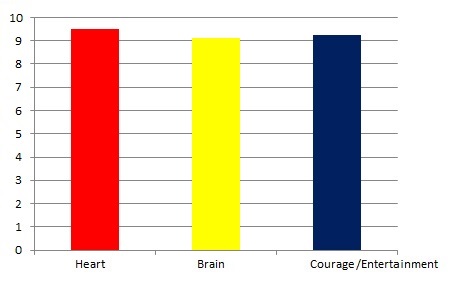 A Bread Factory (Part 1 & 2) 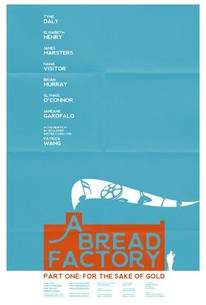 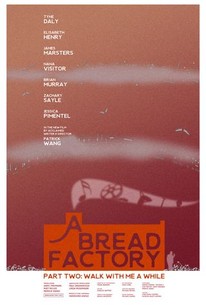 Dorothea (Tyne Daly) and her lover, Greta (Elisabeth Henry), run The Bread Factory, a community theater hosting after-school programs for the arts, in the small town of Checkford. When two Chinese performance artists, May Ray (Janet Hsieh and George Young), arrive in town to open the FEEL Institute across the street, The Bread Factory's much-needed funding from the school system and a government subsidy remains at stake. The small community theater will have to close if it loses the funding. Its staff members, i.e. Jordan (Janeane Garofalo), a filmmaker teaching students about filmmaking, would end up losing their jobs. While fighting to save The Bread Factory, Dorothea and Greta concurrently spend their time directing a production of the play Hecuba by Euripides. Separated into two parts, "For the Sake of Gold" and "Walk With Me a While," A Bread Factory is a wise, funny and genuinely heartfelt story about a community within a small town battling against a much larger force: May Ray, vapid performance artists who can bring more fame and fortune to Checkford with their assistance from Hollywood actors like Trooper Jaymes (Chris Conroy). The school board's decision to fund May Ray instead of The Bread Factory is, essentially, a Faustian bargain because losing The Bread Factory means losing a priceless community that's an essential part of the small town's artistic soul which money cannot buy. Its talented, hard-working employees would lose their livelihoods and no longer be able to be a part of a community that took years to create. Writer/director Patrick Wang immerses audience in the daily lives of the students and employees at The Bread Factory so that you can grasp precisely what Checkford would lose if and when the community theater will close. It's interesting to observe the parallels between the story of A Bread Factory and the story within the play Hecuba. Wang's sensitively-written, intelligent screenplay brims with wit, humor and tenderness without becoming schmaltzy, preachy or melodramatic. Not every part of the film feels completely true-to-life, i.e. a very young projectionist, Simon (Keaton Nigel Cooke), who's wise beyond his years, but that's forgivable because not every drama has to be a 100% slice-of-life. Each performance feels natural, especially when it comes to the scene-stealing, charismatic Tyne Daly. Janeane Garofalo is very funny, over-the-top and snarky filmmaking teacher. Wang clearly understands that the more specific and detailed a story is, the more universal it becomes. There are subplots involving Sir Walter (Brian Murray), an actor who has yet to forgive a theater critic, Jean Marc (Philip Kerr), for criticizing his performance in a play 5 decades ago. Jan (Glynnis O'Connor) is a newspaper editor who's quite supportive of The Bread Factory. There's also Max (Zachary Sayle), a teenager who has a crush on his classmate, Julie (Erica Durham). You'll even find a few surprises within the second part which has some exuberant scenes of characters breaking into song-and-dance in places where you'd least expect them to---like a diner, for instance. With so many characters, the film could've easily turned into an overstuffed, uncooked, uneven mess, but thanks to Wang's impeccable filmmaking skills and humanism along with the terrific editing by Elwaldo Baptiste, it all flows in a way that feels increasingly engrossing and captivating with very few dull moments. 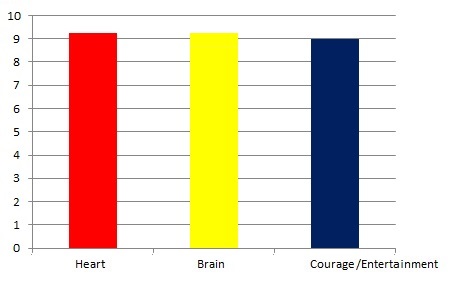 Bullitt County 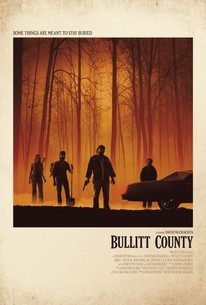 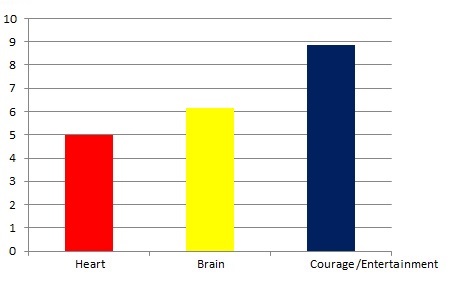 Indivisible 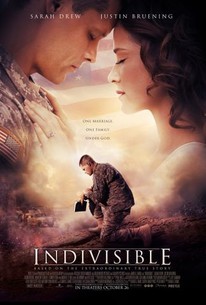 Darren Turner (Justin Bruening), a U.S. Army Chaplain, gets deployed to Iraq after with moving his wife, Heather (Sarah Drew), and three children to Fort Stewart, Georgia. Heather stays in Georgia to take care of their children while joining her neighbor, Tonya (Tia Mowry-Hardrict), to comfort the family of wounded or deceased soldiers. When Chaplain Turner returns from Iraq, he suffers from PTSD which threatens to destroy his marriage and his faith in God. Meanwhile, soldier Lance Bradley (Tanner Stine) leaves behind his pregnant wife, Amanda (Madeline Carroll). Indivisible has an premise that sounds like it has to potential to be inspirational and moving, but it's poorly executed because of a stilted, shallow and dull screenplay. Unfortunately, none of the actors manage to rise above the material with their performances. Writer/director David G. Evans and co-writer Cheryl McKay deal with many themes including PTSD, crisis of faith, crisis of marriage, compassion, love and hope, but they barely even scratch the surface and resort to sugar-coating and oversimplifications. Even the war scenes aren't gritty enough to be powerful or emotionally resonating. Darren Turner seems like an interesting character as does his wife, but the screenplay never quite allows to audience to get inside either of their heads enough for you to care about them as human beings. In turn, the third act falls flat and suffers from lethargy much like the rest of the film. A truly great film is more than just about its plot; it's about the feelings that are generated within its plot. Sometimes those feelings come from the screenplay, sometimes from strong performances and sometimes from both. In the case of Indivisible, there's very little emotions derived from both the screenplay and the performances, so it feels hollow on the inside. It seems as though the plot were just moving through the motions from Point A to Point B out of duty without resonating with any warmth, insight or poignancy in between. To top it all off, the pace often moves too slow and the film overstays its welcome at a running time of just under 2 hours. A more organic screenplay with more attention to getting to know the characters along tighter editing would've made for a much more potent and engrossing war drama. 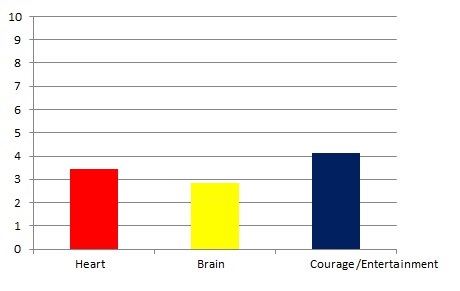 Main Page Alphabetical Menu Chronological Menu ______________________________________________________ |
The NYC Movie Guru
themovieguru101@yahoo.com
Privacy Policy